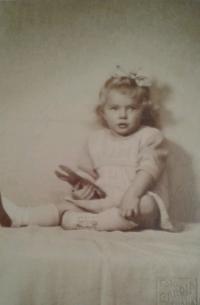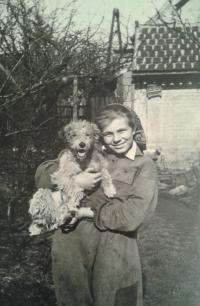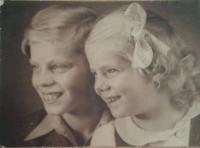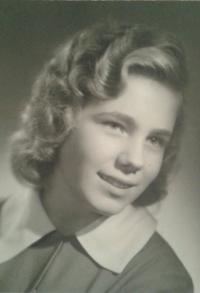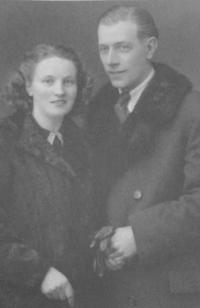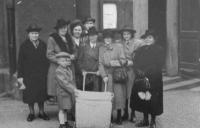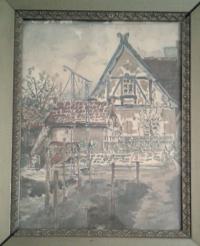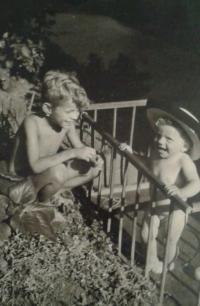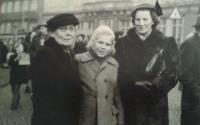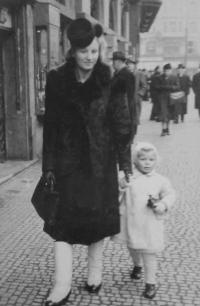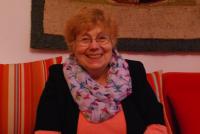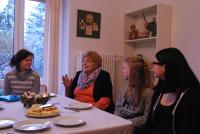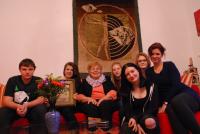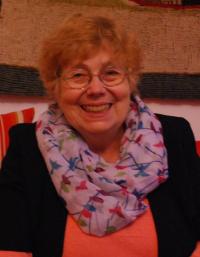“When I was to have the preliminary diploma and then the diploma, I thus had September free, and so I had applied for an exit permit beforehand in order to be able to go visit my father. At that time, it was in 1965, I graduated on June 6, 1965, it was nearly impossible to travel abroad, but since I was an immediate relative, they allowed me to travel. My mom sewed gorgeous clothes for me, everything she could, so that I would look good. My father did not know about it, because we did not write letters to each other, he was not interested in us for many years. I thus had some money and two addresses. I knew only some school German, because I did not want to learn. When my mom, for instance, told me ‘Macht die Türe zu,’ I would just laugh instead of learning something from her. I had a map of Vienna and I was ready to go. I bought tickets. I was actually already married for three years at that time. My husband did not like the idea too much, but he told me: ‘If you want, go visit your father then.’ We boarded the train in the evening. The only train from Prague to Vienna departed in the evening. Some man from Vienna immediately approached me, saying that it would be great, that we would be able to talk and pass the time. My husband said: ‘No way,’ and he led me to another seat. There was an old lady who was going back to Vienna from Prague, where she had gone to visit her sister. I spent the whole night talking with her. I said: ‘I will call there and ask.’ She said ‘No , no,’ – she used the third person form when she addressed me – ‘No, no, my girl, she goes there directly.’ I thus found a tram, and I arrived to the place and it was a house similar to this, but in the old style, and some woman, probably a janitor, was pouring out water from a pail there, and I asked her: ‘Bitte schön, Herr Dedouch ist hier?’ And she just motioned to me to go inside. On the ground floor there was the Büro, because he did grosshandlung with neon lights for Vienna. He was selling the tubes, contacting the workshops, and he simply had a wholesale trade with neon lights. I thus knocked on the door, and nobody was there. I walked to the upper floor, I had not slept the whole night, because I was so nervous. On the second floor, there was a private apartment, and I knocked on the door and his wife came out. My dad was about fifty-four at that time, and the woman was about forty-five. When I saw her, her German-looking watery eyes, and she had a large space between her teeth, I broke out in tears and I said: ‘Ich bin Töchter.’ She thought that I looked very similar to the sister of my father’s who lived in Japan and then in America, she was a great globetrotter. I thus said to her: ‘Ich bin Tochter Herr Dedouch.’ At that moment she froze, because she knew that he had children; they did not have their own children. Well, but her parents were there, my father was not there at the moment, he had some errands in Vienna. Well, her parents were wonderful, they accepted me perfectly.”

